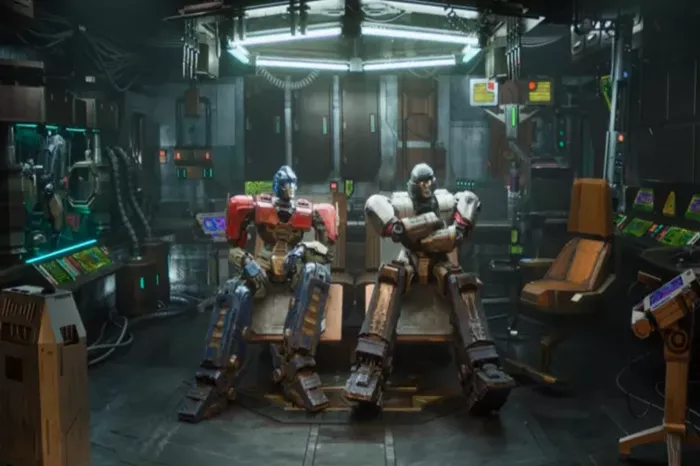The Transformers franchise, particularly its inaugural installment, Transformers (2007), directed by Michael Bay, has generated substantial discussion among film enthusiasts and critics. This film, primarily marketed as an action-packed science fiction adventure, has been labeled by many as an unintentional comedy. This article explores why the movie, despite its explosive set pieces and intense robot battles, evokes laughter and amusement, often due to its quirky human characters, over-the-top action sequences, and distinct directorial style.
The Evolution of Transformers
Origins and Inspirations
The Transformers franchise began as a line of toys created by Hasbro in the 1980s, inspired by Japanese mecha. The toys were soon accompanied by a comic series and an animated television show, which established a significant fan base.
Popularity and Influence: The animated series introduced iconic characters and themes, appealing to both children and adults.
Nostalgia: When Michael Bay was brought on to direct the live-action film, the aim was to capitalize on the nostalgia of the original fan base while introducing the Transformers to a new generation.
Transition to Live-Action
Transforming a beloved animated series into a live-action film was no small feat. Michael Bay’s vision included spectacular visual effects and high-octane action sequences.
Technological Advancements: The film utilized cutting-edge CGI to bring the robots to life, which was groundbreaking for its time.
Audience Expectation: While the original series had a light-hearted tone, fans were curious about how this would translate into the more realistic setting of a live-action film.
Comedy in Transformers
Character Dynamics and Quirky Dialogue
One of the primary sources of comedy in Transformers stems from the interactions between characters and the delivery of quirky dialogue.
Sam Witwicky and Bumblebee: The relationship between Sam (played by Shia LaBeouf) and his car-turned-robot Bumblebee is both endearing and amusing. Sam’s attempts to communicate with Bumblebee, who speaks through radio snippets, provide numerous comedic moments.
Family Dynamics: Sam’s interactions with his parents, portrayed by Kevin Dunn and Julie White, often lead to humorous scenarios, highlighting typical teenage frustrations exaggerated for comedic effect.
Eccentric Side Characters: Characters like Agent Simmons (John Turturro) and hacker Glen Whitmann (Anthony Anderson) add a layer of comic relief with their exaggerated personalities and over-the-top antics.
Over-the-Top Action and Absurd Situations
Michael Bay’s distinctive directorial style often blurs the line between action and comedy, leading to unintentional humorous moments.
Exaggerated Explosions and Set Pieces: Bay is known for his love of explosions and large-scale destruction, which, at times, become so excessive that they evoke laughter rather than awe.
Absurd Scenarios: Certain scenes, such as the robots hiding awkwardly in Sam’s backyard, showcase the juxtaposition of massive, sentient robots trying to remain inconspicuous in a suburban setting.
See also: Will Transformers One Be in Theaters?
Michael Bay’s Directorial Style
Bayhem: A Unique Cinematic Approach
Michael Bay’s style, often referred to as “Bayhem,” is characterized by rapid cuts, sweeping camera movements, and grandiose action sequences.
Visual Spectacle: Bay’s emphasis on visual effects and pyrotechnics sometimes overshadows narrative coherence, leading to unintentionally humorous results.
Pacing and Editing: The frenetic pacing and quick cuts can create a disorienting experience for viewers, contributing to the film’s comedic aspects.
Dialogue and Performance
The dialogue in Transformers often includes exaggerated lines delivered with a sense of earnestness, which can be perceived as comedic.
Cheesy One-Liners: The film is filled with one-liners and catchphrases that, while intended to be cool or dramatic, often come across as cheesy and humorous.
Overacting: Some performances, particularly those of Shia LaBeouf and John Turturro, are so exaggerated that they border on comedic, adding to the film’s unintended humor.
Audience Reception and Critique
Fan Reactions
Fans of the original series had mixed reactions to the comedic elements in the film.
Nostalgic Appeal: Many fans appreciated the humor as a nod to the original series’ lighter moments.
Criticism of Tone: Some fans and critics felt that the comedic elements detracted from the seriousness and epic nature of the Transformers lore.
Critical Analysis
Film critics also had varied responses to the film’s tone and humor.
Positive Reviews: Some critics praised the film’s ability to balance action and humor, providing an entertaining cinematic experience.
Negative Reviews: Others criticized the film for its lack of depth and reliance on spectacle over substance, leading to a comedic interpretation of scenes meant to be serious.
Conclusion
While Transformers was not intended to be a comedy, its unique blend of action, over-the-top characters, and distinct directorial style resulted in numerous moments of humor. Whether intentional or not, these elements have contributed to the film’s lasting appeal and its place in pop culture as a source of both thrilling entertainment and lighthearted amusement.
As the franchise continues to evolve, it’s clear that the comedic aspects, whether through character interactions, absurd scenarios, or Michael Bay’s signature style, will remain a defining feature of the Transformers universe. This blend of action and humor, though divisive, has proven to be a key factor in the franchise’s continued success and popularity.
Related topic:
Who Voices Megatron in Transformers One?
Why Is Peter Cullen Not in Transformers One?
Will Transformers One Be CGI? [Revealed]

